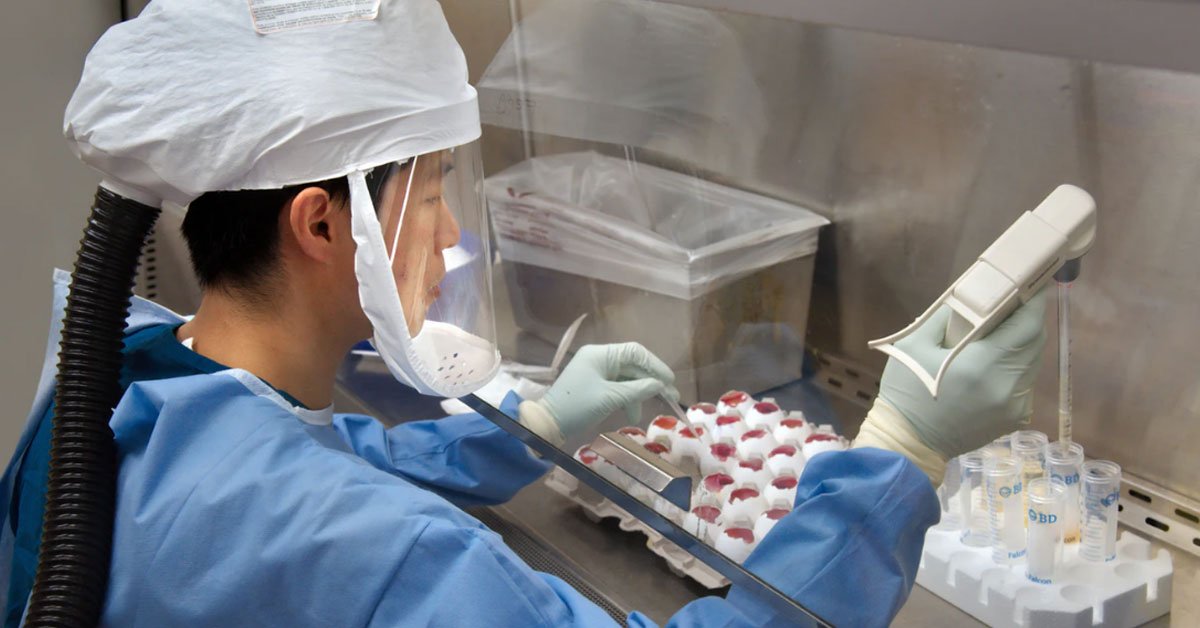Let’s face it: this is a global crisis so even if a country managed to contain the virus successfully, it’d eventually come back fastly.
In other words, the best solution is for all countries to implement the same strategy; if every country buys circuit breakers for their citizens, there’s a chance that we can contain it, or at the very least, flatten the curve together.
But the world isn’t Utopia, and there are some countries that are still allegedly looking at herd immunity as a solution.
Simi is Herd Immunity?
My colleague has written a comprehensive and easy-to-understand article about herd immunity, but here’s the gist: it’s to let many people get infected with it and get immune to it, too.
The only problem? It’ll lead to a heavy strain in the healthcare system, since a portion of the patients would need to be in ICU after being infected, and the country could be Ital-ied or Spain-ed.
And in the more recent example, UK-ed.
However, that is still a solution, as eventually, herd immunity would occur—though it’s be best if a vaccine complements the immunity, just like how H1N1 “ends”.
But a vaccine would most likely only come next year because it needs to be tested.
So, some countries are ambitious enough to try it without a vaccine.
After UK’s U-Turn, Sweden & Holland Appear to Abandon Herd Immunity Direction
As of time of writing, IKEA Sweden now has 6,122 confirmed cases and 351 deaths, while Holland has 15,723 confirmed cases with 1,487 deaths.
You’d have realised something: both are developed countries but their fatality rate is much higher than the global average of 3.4%.
Fredrik Ljungberg’s country has a fatality rate of 5.7% while Dennis Bergkamp’s country is at 9.5%.
For comparison’s sake, Singapore’s fatality rate is at about 0.5% while the US’s fatality rate is at 2.5%.
The reason why these numbers matter is that through them, we can tell how well a country is doing its contact tracing and testing: the more cases you have and the less deaths you have, more people have been tested.
Unless you’ve got so many cases that you don’t have the resources to trace and test everyone lah, like Italy or Spain. That one DORSCON Short Circuit liao.
Both Sweden and Holland have been accused of going for the herd immunity direction, and their fatality rates show.
However, just like the UK, it seems like they’ve just learned a big lesson.
About a week ago, Sweden,, the country with mere 10.12 million but about 2,000 cases then, still refused to close schools and only banned gatherings of more than 500 people, with the head of Sweden’s public health agency saying that they “cannot take draconian measures that have a limited impact on the epidemic but knock out the functions of society.”
While schools aren’t shut down yet, the authorities finally put on stricter measures—social distancing was enforced and there would be a ban on gatherings with more than 50 people.
In Holland, the Prime Minister has addressed the nation on 16 March 2020, and saying that the direction the country was taking is to control the virus as much as possible, which “lead to a controlled spread among the groups least at risk.”
Of course, that’s herd immunity but catered to the low-risk population, which sounds like a good idea except that it might be hard to convince people not to meet their parents for weeks.
A week or so later, the country introduced stricter social distancing measures, and national exams were cancelled.
When the country has 10,000 cases, the authorities stated that “the number of hospitalised patients and the number of deaths are increasing less quickly than would have been expected without measures.”
The Fine Balance Between Saving Lives and Saving Livelihoods
Now, herd immunity might sound like a good idea on the surface, and is essentially the final solution, but from how the UK has changed its stance to how Sweden and Holland are now introducing measures instead of letting the population catch the virus like it’s the common flu, you know it’s not exactly feasible now.
The repercussions of not doing herd immunity would of course be the economic downturn.
But with most countries saving lives instead of livelihoods, the authorities’ challenge definitely won’t end after the outbreak is over.
That would be when they’ll face a greater challenge: bringing the country back to normalcy.
Advertisements
After all, right here in Singapore, we know that many people are going to be jobless in the next few months, and one can only wonder how they can survive the rest of the year.




